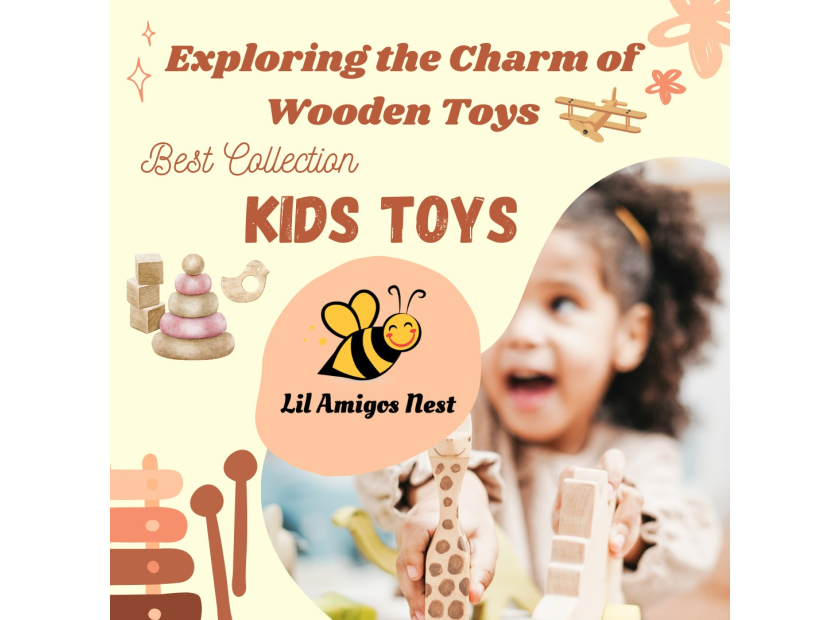The Eco-Friendly Choice: Exploring the Charm of Wooden Toys
Introduction:
In an era where sustainability and environmental consciousness are increasingly valued, parents are turning to eco-friendly alternatives for their children's toys. Among these alternatives, wooden toys have emerged as a timeless and charming option that not only captivates young imaginations but also minimizes environmental impact. Join us as we delve into the world of wooden toys, exploring their undeniable charm and eco-friendly appeal.
Crafted from Nature's Bounty:
Wooden toys are crafted from natural materials, primarily sustainably sourced wood, which makes them inherently eco-friendly. Unlike plastic toys that contribute to pollution and rely on finite resources, wooden toys are biodegradable and renewable, aligning with eco-conscious principles and leaving a smaller environmental footprint.
Durability and Longevity:
One of the key characteristics of wooden toys is their durability. Unlike plastic toys that often break or degrade over time, wooden toys are built to last, withstanding rough play and passing through generations as cherished heirlooms. Their longevity reduces the need for frequent replacements, ultimately reducing waste and promoting a more sustainable consumption pattern.
Safe and Non-Toxic:
Parents seeking safe and non-toxic options for their children will appreciate the natural qualities of wooden toys. Unlike some plastic toys that may contain harmful chemicals like BPA or phthalates, wooden toys are typically made with natural finishes or non-toxic paints, ensuring a safe play environment for children. This peace of mind is invaluable for parents concerned about their child's health and well-being.
Encouraging Imaginative Play:
Wooden toys inspire imaginative play, allowing children to explore their creativity and immerse themselves in imaginative worlds. From simple wooden blocks that can be transformed into towering structures to intricately designed wooden dolls that become characters in elaborate stories, these toys stimulate creativity, problem-solving skills, and social interaction, fostering holistic development in children.
Supporting Artisan Craftsmanship:
Behind every wooden toy lies the skillful craftsmanship of artisans who take pride in their work. Purchasing wooden toys supports small-scale artisans and woodworking communities, preserving traditional craft techniques and promoting economic sustainability. Each wooden toy is a testament to the dedication and artistry of these craftsmen, adding to the charm and value of the toy.
Conclusion:
As parents strive to make eco-friendly choices for their families, wooden toys stand out as a sustainable and charming option that aligns with their values. From their natural origins and durability to their safety and support for artisan craftsmanship, wooden toys offer a host of benefits that go beyond mere playthings. By choosing wooden toys, parents can provide their children with an eco-conscious play experience that nurtures creativity, promotes sustainability, and embodies timeless charm.


























